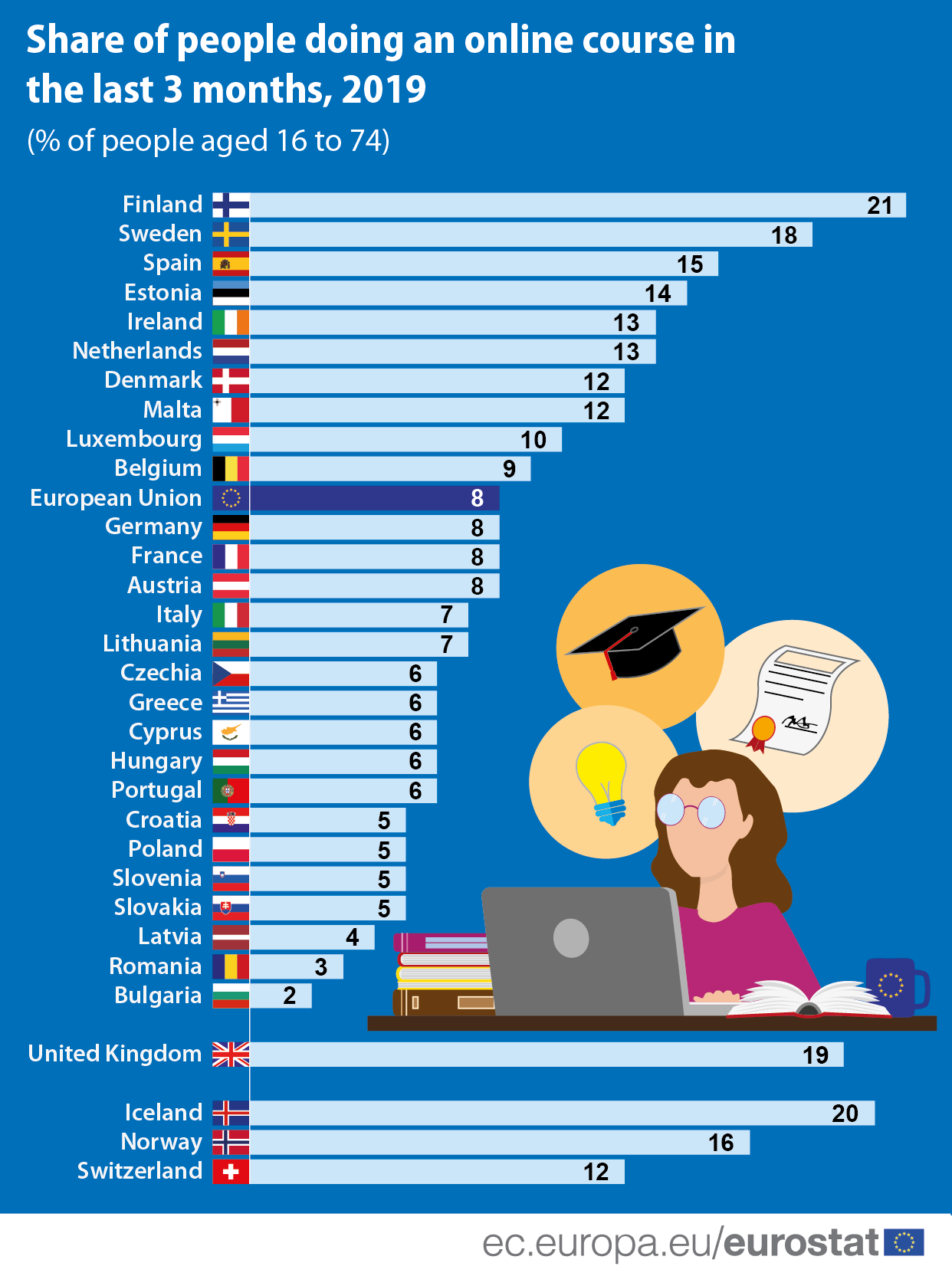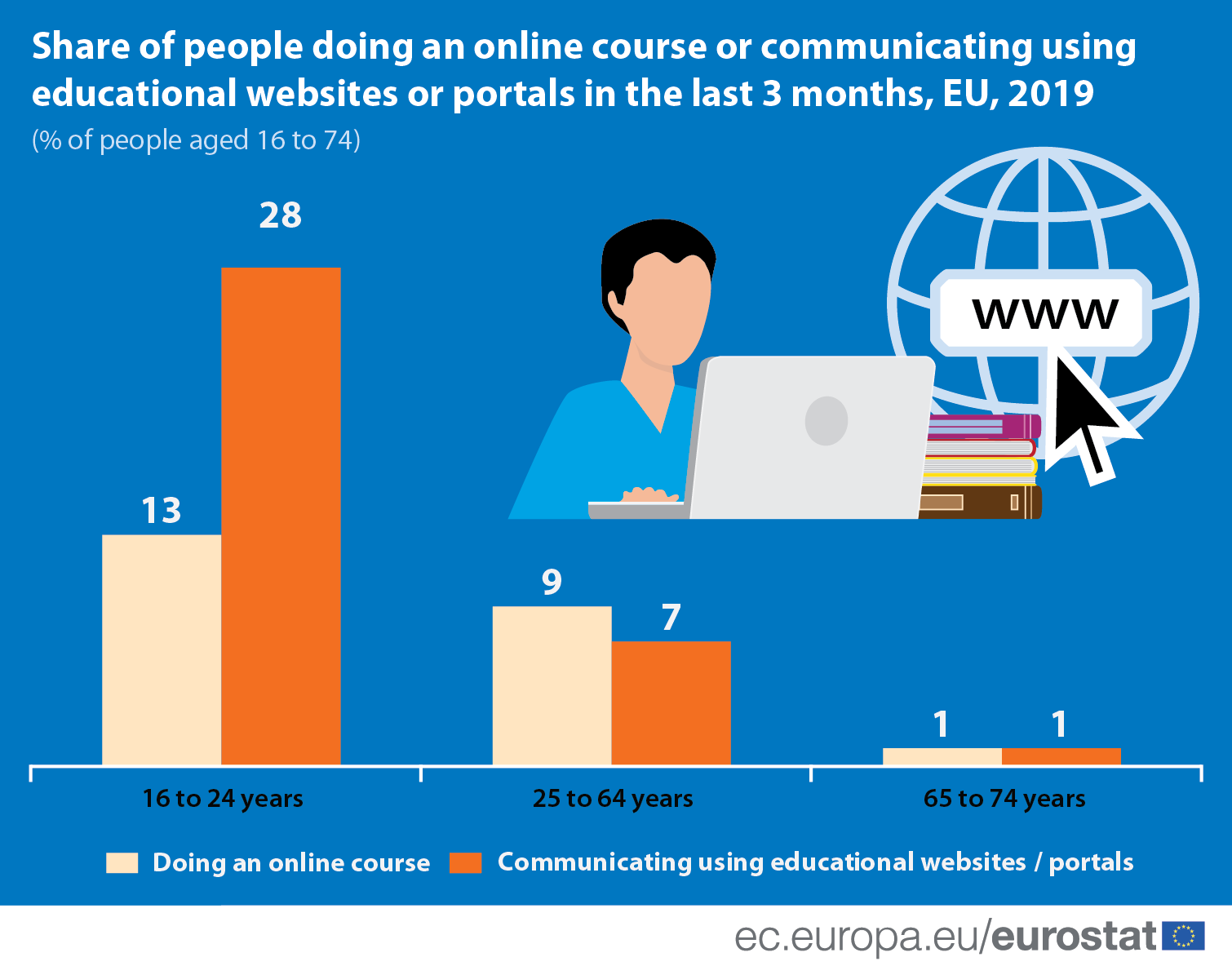Doing online courses is a convenient way to learn something new or to deepen your knowledge in a specific field, for example improving your language skills, expanding your professional qualifications or simply learning something new for fun! During the current coronavirus pandemic, with people encouraged to limit their social contacts as far as possible, online courses offer a safe alternative for education and training.
In 2019, 8% of people aged 16 to 74 in the European Union (EU) reported that they did an online course in the last 3 months prior to the survey, an increase compared with 7% in 2017. Compared with 2010, the share of people doing an online course doubled from 4%.
Among the EU Member States, the Nordic countries Finland and Sweden stood out. In 2019, 21% of people aged 16 to 74 in Finland did an online course in the last 3 months, in Sweden this share was 18%. They were followed by Spain (15%), Estonia (14%), Ireland and the Netherlands (both 13%).
At the other end of the scale, doing online courses was not very common in Bulgaria (2%), Romania (3%) and Latvia (4%).
Between the 2017 survey and 2019 survey, the share of people doing online courses increased in vast majority of the EU Member States, whilst remaining stable in others. The sharpest increase was observed in Ireland, from 4% in 2017 to 13% in 2019 (+9 percentage points (pp)). The share of people doing an online course had risen strongly also in Malta (+6 pp) and Finland (+5 pp).
Data source: isoc_ci_ac_i
Young people, aged 16 to 24, are generally doing online courses more frequently than the average adult population. In 2019, 13% of young people reported doing an online course in the last 3 months, compared to 9% among adults aged 25 to 64. Among older people (aged 65 to 74), only 1% did an online course.
Even larger differences between the age groups are observed in one further aspect of online learning activities: communication with instructors or students via educational websites or portals. In 2019, 28% of young people aged 16 to 24 reported to have communicated with instructors and students online in the last 3 months, while only 7% of those aged 25 to 64 were doing this.
Data source: isoc_ci_ac_i
This information comes from Eurostat’s Community survey 2019 on ICT usage in households and by individuals; methodological information related to the survey can be found here, the full data from the survey is available here.
The World Telecommunication and Information Society Day is celebrated on 17 May each year, to mark the founding of the International Telecommunication Union (ITU) in 1865. In 2020, it is celebrated under the theme “Connect 2030: ICTs for the Sustainable Development Goals (SDGs)”, focusing on how technological advances in the coming 10 years will contribute to accelerate the achievement of the Sustainable Development Goals.
Note:
- The European Union (EU) includes 27 EU Member States. The United Kingdom left the European Union on 31 January 2020. Further information is published here.
- Data in the database are organised according to the survey year; the results above refer for the individuals’ activities during the last 3 months prior to the survey.
To contact us, please visit our User Support page.
For press queries, please contact our Media Support.



